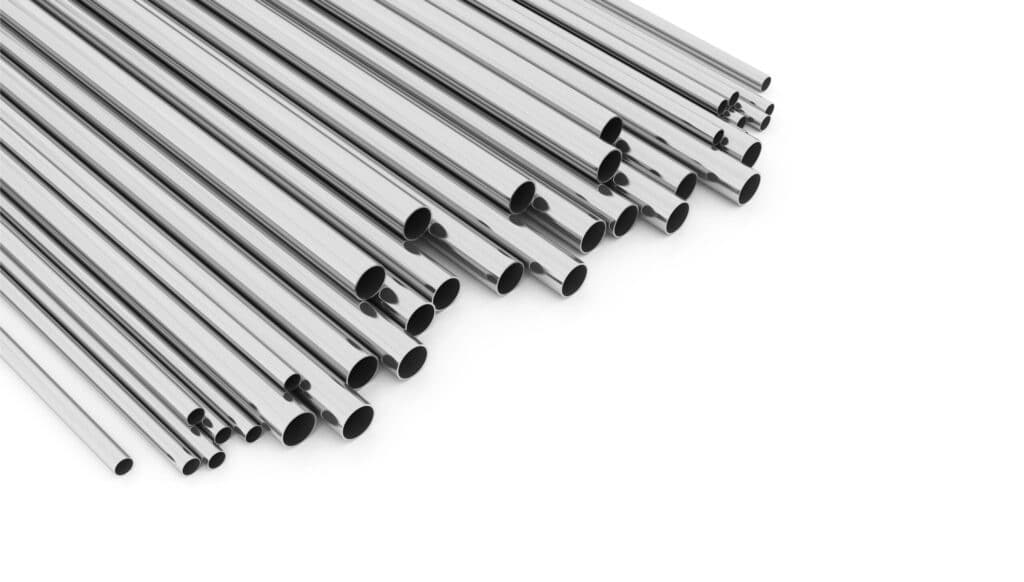- Home
- What We Offer
Medical Solution Suite
Corporate Gift
- About Us
- Market Application
- Partnership
- Contact Us
- News & Events
- 𝐌𝐞𝐝𝐢𝐜𝐚𝐥 𝐒𝐨𝐥𝐮𝐭𝐢𝐨𝐧 𝐒𝐮𝐢𝐭𝐞
- – Medical Extrusion Tubing
- – PTFE Product
- – Heat Shrink Tube
- – Mandrel
- – Consumables
- 𝐌𝐞𝐝𝐒𝐄𝐀 𝐑𝐞𝐭𝐚𝐢𝐥
- – Retail – Dacco (Mama & Baby Gift)
- – Retail – Dacco (Maternity Consumables)
- – Retail – Dacco (Maternity Aid)
- – Retail – Dacco (Maternity Pad)
- – Retail – Dacco (Mummies Fashion)
- – Retail – Dacco (Body Shaper)
- – Retail – Dacco (Baby Wipe)
- – Retail – Dacco (Baby Towel)
- 𝐌𝐞𝐝𝐒𝐄𝐀 𝐆𝐢𝐟𝐭
- – Personalized Gift
- – Signature MedTEA
- 𝐌𝐞𝐝𝐟𝐲-𝐑𝐢𝐧𝐠
- – Why Medfy-Ring
- – Features of Medfy-Ring
- – Product Specification
Medical Grade Mandrel
Categories
Contact Info
-
+65 82854986
(Singapore HQ) - sales@medseaforte.com
- 7 Temasek Boulevard, #12-07, Suntec Tower One, Singapore 038987

What Is A Mandrel?
A mandrel is a cylindrical tool that is typically used to shape, support, or reinforce materials during the production of various medical devices. Mandrels are preferably made from stainless steel 304 / 316, whereas other types of material, such as brass and copper, can also be considered based on the specific requirements of a medical device. Mandrels are being customized in various shapes and sizes to meet the precise requirements of specific medical devices; generally, mandrels can be customized into tapered, stepped, or even with a “D-shaped” tip to provide additional support during the manufacturing process.
In the medical industry, mandrels are essential for constructing high-quality medical devices. These medical-grade mandrels are often coated with materials like PTFE (Polytetrafluoroethylene) and Parylene to enhance their performance. These coatings provide a low coefficient of friction, chemical resistance, and biocompatibility, making the mandrels ideal for various medical applications.
PTFE-coated mandrels, for example, are renowned for their durability and reusability. They offer smooth surfaces, which are crucial for the precise construction of medical devices. On the other hand, Parylene-coated mandrels provide excellent protection against chemicals and extreme temperatures, ensuring the reliability and safety of medical equipment.
Purpose of Catheter Mandrel
Structural Support
This component is essential in forming various medical devices, providing critical support for thin wall sections and maintaining tolerances during manufacturing. This support ensures that medical devices are durable, reliable, and capable of withstanding the demands of medical use. For instance, during the production of catheters and guidewires, mandrels help maintain their structural integrity, enabling smooth and accurate functionality.
Precision Molding
Medical-grade mandrels ensure precise shaping and dimensions, which are critical to prevent the slightest deviation in size or shape that can lead to significant issues. They facilitate exact dimensions and smooth surfaces, which are essential for the proper functioning of medical devices. This precision is particularly important in the production of devices like stents and catheters, where accurate measurements are vital for patient safety and device effectiveness.
Applications of Mandrel in Medical Devices
Extrusion
Mandrels help in forming the internal diameter of tubes and catheters, ensuring that they have the correct dimensions and smooth surfaces. This is crucial for producing high-quality medical devices that function correctly.
Catheter Construction
In catheter construction, mandrels serve as the backbone, offering crucial support and shaping during manufacturing. They help maintain the catheter’s structural integrity, ensuring it remains flexible yet durable. This support is vital for producing catheters that can navigate the human body's complex pathways without kinking or breaking, thereby ensuring patient safety and device efficacy.
Surgical & Interventional Tools
Medical-grade mandrels provide the necessary structure and precision required to produce intricate surgical and interventional tools. The accuracy offered by mandrels in shaping and forming these tools ensures they perform effectively during surgeries, contributing to better patient outcomes and surgical success.
Guidewires & Sterns
Guidewires and stents must be precise and robust to function safely within the body. As such, using medical-grade mandrels in their production helps achieve the necessary precision and strength needed for their formation and durability. Mandrels ensure that guidewires and stents perform reliably in medical procedures, such as navigating blood vessels or supporting arterial walls.
Our Types of Medical-Grade Mandrels
As a trusted medical tubing supplier in Singapore, we at MedSEA Forte offer high-quality medical-grade mandrels designed to meet the stringent requirements of the medical industry.
Parylene-Coated Mandrels

Parylene is a special coating that is considered by many product owners to be the ultimate conformal coating due to excellent thermal stability, chemical stability, electrical insulation, and biocompatibility. Parylene-coated mandrels are widely used to support the building of catheters and other medical devices.
Key Characteristics of Parylene Coated Mandrel
Excellent Lubricity
Tight Fit Tolerance
Excellent Thermal Stability
As these types of medical-grade mandrels exhibit excellent thermal stability, they can withstand high-temperature processes without degrading.
Biocompatibility
The biocompatibility of Parylene ensures that the coated mandrels are safe for use in medical applications, minimizing the risk of adverse reactions.
Excellent Concentricity
These mandrels offer excellent concentricity, which is essential for producing uniformly shaped medical devices.
Ultra Thin & Uniformity
The ultra-thin and uniform Parylene coating ensures consistent performance and quality, critical for high-precision medical devices.
PTFE Coated Mandrels
PTFE (Polytetrafluoroethylene) coated mandrels are another high-performance option we offer. PTFE is known for its low coefficient of friction, chemical resistance, and durability, making it an ideal choice for various medical applications.
Key Characteristics Of PTFE Coated Mandrels
Low Coefficient of Friction
Their low coefficient of friction allows manufacturers to boost the production of formed rubber bladders, extruded small-diameter PTFE medical tubing, and other similar products.
Chemical Resistance
The chemical resistance of the PTFE coating ensures that the mandrels can withstand exposure to various substances during the manufacturing process without degrading.
Biocompatibility
Like Parylene, PTFE is biocompatible, making it safe for use in medical devices that come into contact with the human body.
Durability and Reusability
PTFE-coated mandrels are durable and reusable, offering cost-effective solutions for high-volume production.
Precision and Consistency
These mandrels ensure precise and consistent dimensions, crucial for the reliable performance of medical devices.
Temperature Resistance
PTFE-coated mandrels can withstand a wide range of temperatures, making them suitable for various manufacturing environments.
Catheter Mandrel Size Chart
|
Type
|
Dimension (Inch ")
|
|||
|---|---|---|---|---|
|
|
Outer Diameter (OD)
|
OD Tolerance
|
Length
|
Length Tolerance
|
|
Straight
|
From 0.008
|
±0.0002
|
Up to 30"
|
±0.05
|
|
Tapered
|
From 0.008
|
±0.0002
|
Up to 30"
|
±0.05
|
|
Stepped
|
From 0.008
|
±0.0002
|
Up to 30"
|
±0.05
|
|
D Shaped
|
From 0.008
|
±0.0002
|
Up to 30"
|
±0.05
|
Why Choose MedSEA Forte’s Catheter Mandrels
At MedSEA Forte, we pride ourselves on being a comprehensive solution for medical products.
Quality Assurance
When it comes to medical devices, quality is non-negotiable. As such, we employ rigorous quality control protocols to ensure that every medical-grade mandrel we produce meets industry standards.
Customization to Specifications
We understand that customization is key to meeting diverse application needs. That’s why our mandrels are tailored to your exact specifications, ensuring seamless integration into your manufacturing process.
Proven Industry Expertise
With decades of experience serving the medical manufacturing sector, MedSEA Forte is more than just a supplier—we’re your partner in innovation. By working with us, you gain access to expertise and resources that position your medical devices for success in a competitive market.
General Application of Parylene Coated & PTFE Coated Mandrels
Heat Shrink Tubes
Explore medical heat shrink tubing that can provide optimal insulation, protection, and support for medical devices and components.
PTFE Products
Known for their excellent friction coefficient and chemical resistance, our PTFE products are an ideal solution for manufacturing a range of medical devices.
